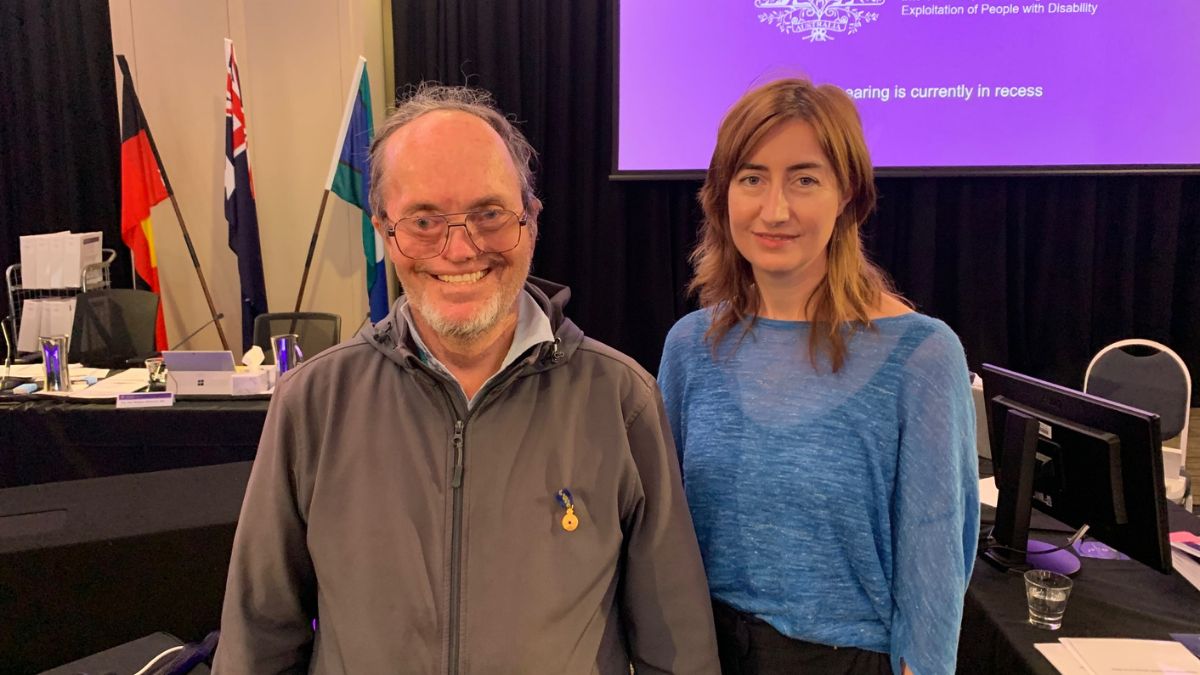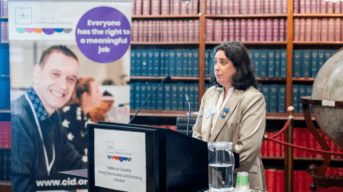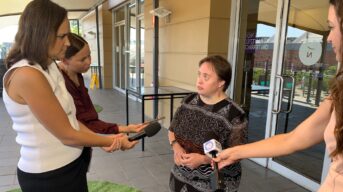
NSW makes a guarded response to the Disability Royal Commission
The key question – What solid change will happen before the next election?
Read the Easy Read version of this blog (PDF).
The abuse and neglect uncovered by the Disability Royal Commission (DRC) over its four-and-a-half years of hearings, demands the most urgent and strong responses by governments. CID members and staff gave powerful evidence to the Royal Commission.
Nine months after the DRC issued its report, the NSW Government has responded. The response does not guarantee urgent and strong action and lacks the necessary allocation of new funding.
The NSW Government unreservedly accepts only 9 of the more than 120 DRC recommendations that apply to it. It accepts in principle another 79 and over 30 are “subject to further consideration”.
The response includes many commitments to explore ways to make positive changes in line with the DRC Report. However, only time will tell where these processes lead and whether they will make big differences to the lives of people with disability.
There are severe limits on the actions that can be taken on Royal Commission recommendations without major new spending commitments. The government’s response makes no new spending commitment.
Rather than committing to Guardianship Law reform, the NSW Government will “closely consider” it. It will consider advice from its Guardianship Working Group and will undertake a “detailed assessment of the operational and resourcing impacts of reforms”. CID was represented on the Working Group, which flowed from a pre-election promise we obtained from Attorney-General Michael Daley.
The Government agrees with the DRC’s concerns about the “disproportionate rate of preventable deaths for people with disability, but will only “carefully consider” the DRC’s recommendation to establish a disability deaths review scheme. NSW had a very valuable scheme led by the Ombudsman but it was abolished by the previous Government in 2022 without public consultation.
In some cases, this guarded response is understandable. For example, the six intellectual disability health services funded by NSW Health and the court diversion service funded in six local courts by the Department of Communities and Justice are both currently being evaluated. Those evaluations are relevant to what further actions the government takes though, from CID’s point of view, the argument for both the services going statewide are very clear.
The NSW government has made some welcome commitments to specific action including:
- To establish a First Nations Disability Forum
- To implement their election commitment to make NSW government information available in Easy Read. CID is working closely with the Government on this work.
CID has welcomed the understanding and commitment to issues facing people with intellectual disability shown by members of the Government, in particular Disability Inclusion Minister Kate Washington and Parliamentary Secretary Liesl Tesch.
In considering the Government’s response to the Royal Commission, the key question for CID is what solid action occurs on DRC recommendations between now and the next state election in March 2027. In our December 2023 call to action on the DRC Report, we made nine “key asks” to the NSW Government.
Focusing on some of these key asks, by the end of 2026:
- Will the Guardianship Act 1987 have been replaced by new legislation focused on supported decision-making and the will and preferences of people with disability?
- Will there be an intellectual disability health team in each of the 15 local health districts around the state?
- Will there be a marked increase in the number of people with intellectual disability employed by the State Government and State Government contractors?
- Will there be a marked increase in the supply of social housing and will Homes NSW have processes that are accessible to people with intellectual disability?
- Will the court diversion service operated by the Intellectual Disability Rights Service be available statewide?
- Will there be a marked increase in the number of students with intellectual disability learning alongside their peers without disability in mainstream classes with appropriate support and resources?
CID will continue to advocate strongly for these objectives and looks forward to working with Government on achieving them.
CID will also continue to press issues that we raised at the DRC but did not lead to specific recommendations. People with intellectual disability should have central roles in governance of disability organisations.
The harm that people with disability suffered in residential institutions requires a strong response. We were recently part of an excellent discussion with Minister Washington on this issue.
CID will continue to listen to people with intellectual disability and their communities, and to advocate strongly for the things that will make the lives of people with intellectual disability better. We look forward to working with the NSW Government to make this happen.



 1800 424 065
1800 424 065 













